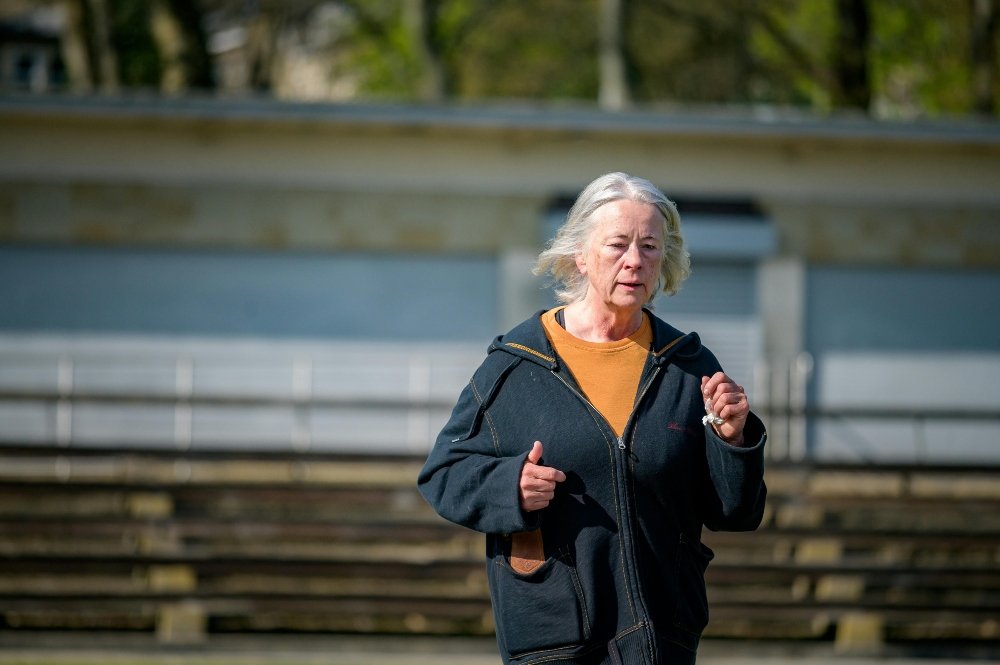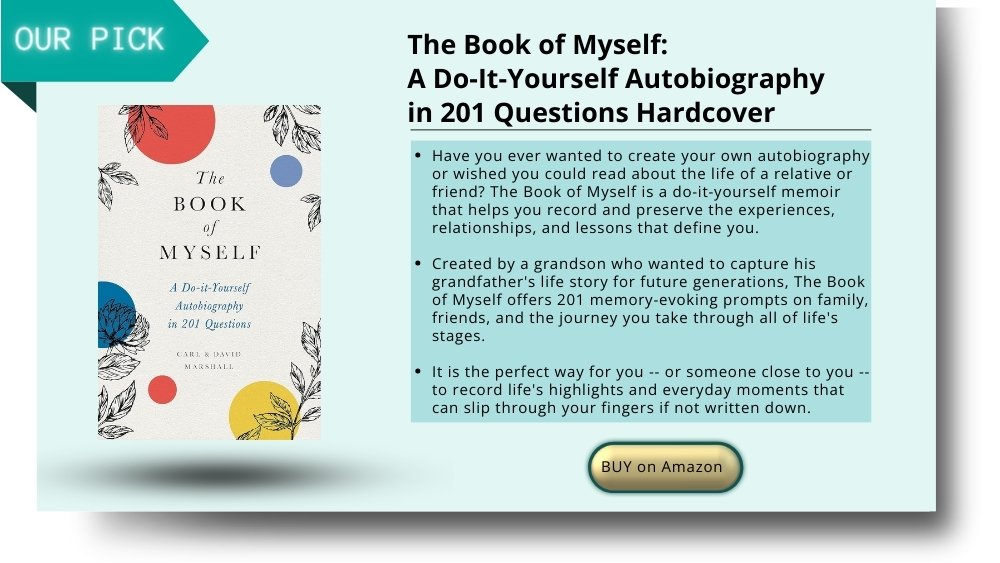A major change in life, retirement usually presents chances for leisure and personal development. This time, though, one may also suffer from self-esteem. Common worries are finding meaning, adjusting to a new schedule, and preserving individuality. A happy and interesting life depends on high self-esteem in retirement.
Strategies to Boost Self-Esteem in Retirement
This post will look at doable tactics to boost self-esteem in retirement, remaining active, and confidently welcoming this new chapter.
Staying Active and Healthy
Retiring requires maintaining both physical and mental health if one is to raise self-esteem. Your well-being will be much improved by regular physical activity, a balanced diet, and mindfulness practice. This part will offer useful advice and ideas on how to be active and healthy, therefore guaranteeing a vivid and satisfying retirement. We will also talk about the need of early discovery via frequent medical visits.
Importance of Physical Activity
To maintain decent health and boost self-esteem in retirement depends on regular physical activity. Exercise lowers stress and anxiety and releases endorphins, which are naturally occurring mood lifters. It also advances general energy levels, cardiovascular health, and sleep quality. Including several kinds of exercise in your schedule will have overall advantages.
Cardiovascular activities boost heart health and endurance and include walking, swimming, cycling, and dancing. Using weights or resistance bands, strength training helps preserve muscular mass—a vital component for mobility and independence. Yoga and Pilates are among the flexibility and balancing workouts that improve range and lower fall risk.

Tips for Staying Active:
- Set realistic goals: Start with small, achievable goals and gradually increase the intensity and duration of your workouts.
- Find enjoyable activities: Choose activities you enjoy to make exercising more fun and sustainable.
- Join a group or class: Social interactions during group activities can enhance motivation and provide a sense of community.
Prefer to listen than read?
Benefits of a Balanced Diet
Retiring requires a healthy diet if one is to keep physical health and boost self-esteem in retirement. Consuming a range of nutrient-dense foods gives the body the vitamins and minerals it needs to run as it should. Rich in vitamins, minerals, and antioxidants supporting general health and lowering of the risk of chronic diseases, fruits and vegetables are the elements of a balanced diet. A healthy body from following this diet lets you boost self-esteem in retirement.
Essential fibre included in whole grains such as oats, brown rice, and whole wheat helps digestion and keeps constant energy levels. Fish, chicken, beans, and lentils are among other lean proteins that enhance muscular health and help rebuild and heal tissues. From nuts, seeds, avocados, and olive oil, healthy fats offer vital fatty acids supporting brain function and lowering of inflammation.
Healthy Eating Tips:
- Practice portion control: Be mindful of portion sizes to avoid overeating.
- Stay hydrated: Drink plenty of water throughout the day to stay hydrated and support bodily functions.
- Limit processed foods: Minimize the intake of processed foods high in sugar, salt, and unhealthy fats.
Mental Health Practices: Mindfulness and Meditation
In retirement, mental health just as much as physical health is vital. Mindfulness and meditation among other practices help lower stress, increase focus, and improve general well-being, thereby boost self-esteem in retirement.
Among the many advantages mindfulness and meditation provide are increased emotional control, reduced stress, and enhanced attention and concentration. These techniques improve mental clarity, help to properly control emotions, and encourage relaxation and quiet. A strong mental health is a good way to boost self-esteem in retirement.
Getting Started with Mindfulness and Meditation:
- Find a quiet space: Choose a quiet, comfortable place to practice.
- Start small: Begin with short sessions of 5-10 minutes and gradually increase the duration.
- Use guided sessions: Apps and online videos can provide guided meditation sessions, making it easier to get started.
Early Detection Through Medical Checkups
Regular medical visits depend on early detection of possible health problems, which also greatly help to boost self-esteem in retirement. Early identification enables quick intervention, therefore enhancing results and preserving general health. Regular visits assist in controlling current medical conditions, finding health problems before they become major, and giving peace of mind by knowing one’s health state.
Blood pressure and cholesterol checks to prevent cardiovascular diseases, diabetes screening to prevent complications, cancer screenings for early detection and treatment of cancers including breast, colon, and prostate, and vision and hearing tests to ensure any changes are promptly address key health screenings for retirees.

Tips for Staying on Top of Medical Checkups:
- Schedule regular appointments: Mark your calendar for regular checkups and screenings.
- Keep a health journal: Track your health metrics, medications, and any symptoms.
- Communicate with your doctor: Be open and honest with your healthcare provider about any concerns or changes in your health.
You can boost self-esteem in retirement by keeping active and healthy in retirement. You may guarantee a vigorous and joyful retirement by include regular physical activity, a balanced diet, mindfulness, and keeping up with doctor visits.
Finding Purpose and Meaning
Maintaining a good quality of life and boost self-esteem in retirement depend on one finding purpose and meaning for it. Many retirees battle a loss of identity and purpose once they leave the employment. Participating in important events can help one regain value and fulfillment, therefore enhancing the retirement experience.
Volunteering and Community Involvement
One great approach to discover direction and boost self-esteem in retirement is volunteering. Retirees who help the community can stay active, create fresh connections, and change other people’s life. Volunteering not only benefits others but also gives one a sense of pride and accomplishment, therefore greatly increasing self-esteem in retirement.
Ways to Get Involved:
- Local Charities: Offer your time and skills to local charities and non-profit organizations.
- Community Centers: Participate in or lead activities at community centers.
- Mentorship Programs: Share your knowledge and experience by mentoring younger individuals or professionals.
Pursuing Hobbies and Passions
Rediscovering past interests or pursuing fresh passions is best done in retirement. Participating in things you enjoy can bring great pleasure and satisfaction, which is absolutely vital to boost self-esteem in retirement. Pursues of interests can help you creatively and functionally occupy your days in painting, gardening, music performance, or cooking. You can further fill accomplished by learning new skills like making online video content. There are sites like Skillshare where the best educators teach you new pursuits during your golden years.
Ideas for Hobbies and Passions:
- Creative Arts: Painting, writing, crafting, or playing music.
- Outdoor Activities: Gardening, hiking, bird-watching, or fishing.
- Learning New Skills: Taking up photography, cooking classes, or learning a new language.
Lifelong Learning and Educational Opportunities
One of the best ways to establish direction and boost self-esteem in retirement is to keep developing intellectually. Lifelong education sharpens the mind, stimulates inquiry, and creates fresh paths for human growth. Many colleges and companies provide programs especially meant for retirees.
Opportunities for Lifelong Learning:
- Online Courses: Platforms like Coursera, Udemy, and Khan Academy offer a wide range of courses.
- Local Colleges and Universities: Many institutions provide senior discounts or free courses for retirees.
- Community Workshops: Attend workshops or seminars on topics that interest you.
Building and Maintaining Social Connections
Strong social connections are vital for emotional well-being and boost self-esteem in retirement. Maintaining relationships with family and friends, and making new connections can provide support, companionship, and a sense of belonging. Social activities can also introduce you to new interests and opportunities for engagement.
Ways to Build Social Connections:
- Strengthen Existing Relationships: Regularly connect with family and friends through visits, calls, or online.
- Make New Friends: Join clubs, groups, or social organizations where you can meet like-minded individuals.
- Participate in Group Activities: Engage in community events, group fitness classes, or hobby groups.
Finding purpose and meaning in retirement is a journey that involves exploring new opportunities and staying engaged. By volunteering, pursuing hobbies, continuing education, and building social connections, retirees can significantly boost self-esteem in retirement. This sense of purpose and fulfillment will contribute to a happier and more meaningful retirement life.
Financial Security and Planning
Managing Retirement Finances
Properly managing your finances in retirement is crucial. Having a clear understanding of your income, expenses, and savings helps maintain financial stability and reduces stress. Creating and adhering to a budget ensures that you live within your means while still enjoying your retirement. A secure finances can boost self-esteem in retirement.
Key Financial Management Steps:
- Assess Your Income: Determine all sources of income, including pensions, social security, investments, and part-time work.
- Track Expenses: Keep a detailed record of your monthly expenses to understand where your money is going.
- Create a Budget: Develop a realistic budget that balances your income and expenses, allowing for savings and discretionary spending.
Seeking Professional Financial Advice
Consulting with a financial advisor can provide valuable insights and strategies for managing your retirement funds. Professional advice can help optimize your investment portfolio, plan for future healthcare costs, and ensure you have a sustainable income stream throughout retirement. This proactive approach to financial planning can boost self-esteem in retirement by instilling confidence in your financial decisions.
Benefits of Professional Financial Advice:
- Personalized Planning: Receive tailored advice that aligns with your financial goals and risk tolerance.
- Investment Management: Ensure your investments are diversified and aligned with your retirement timeline.
- Tax Planning: Minimize tax liabilities and maximize retirement savings through strategic planning.

Exploring Passive Income Opportunities
Generating passive income is an excellent way to enhance financial security and boost self-esteem in retirement. Passive income streams can provide a steady flow of revenue without requiring significant ongoing effort, allowing retirees to enjoy their time while still earning.
Many of these passive income opportunities require lots of work. These include starting an online blog or running an online store. Fortunately, you can hire global workers to run different parts of your business. You can find these people at sites like Fiverr and Onlinejobs.
Passive Income Ideas:
- Real Estate Investments: Rental properties or real estate investment trusts (REITs) can offer regular income.
- Dividend Stocks: Investing in dividend-paying stocks can provide regular payouts.
- Peer-to-Peer Lending: Platforms that facilitate lending to individuals or small businesses can generate interest income.
- Online Businesses: Creating an online store, blog, or digital products can generate passive income with initial setup and minimal maintenance.
Embracing Change and Adaptability
Retirement is a big life shift that involves a lot of adjustments. Retaining a positive mindset and boost self-esteem in retirement requires embracing these changes and being flexible. Retirees who possess these qualities will be better able to handle new situations, overcome obstacles, and enjoy this fulfilling stage of life.
Developing a Positive Mindset
In retirement, maintaining a positive outlook is essential for accepting change and boost self-esteem in retirement. Refocusing your attention from the losses to the opportunities retirement offers can change your perspective and improve your general well-being. Gratitude exercises and upholding a happy outlook can have a big impact.
Methods for Creating a Positive Attitude:
- Practice Gratitude: Take time each day to consider and be grateful for all that is good in your life.
- Pay Attention to Opportunities: Consider your retirement as an opportunity to discover new hobbies and pastimes.
- Remain Positive: Steer clear of negative thought habits and surround yourself with uplifting people.
Coping with Life Transitions
Retirement brings about a number of life transformations, including adjustments to daily schedules, social roles, and personal identities. You can boost self-esteem in retirement with a smooth transition. You can locate new fulfillment sources and adjust to these changes more quickly if you recognize and embrace them.

Techniques for Handling Life Transitions:
- Recognize Your Emotions: Recognize and accept the feelings that accompany change.
- Seek Assistance: Discuss your experiences with family, friends, or a professional counsellor.
- Remain Active: Take part in enjoyable and stimulating activities.
Setting Realistic Goals and Celebrating Achievements
In retirement, having attainable goals can give you direction and a sense of purpose. Reaching each goal can boost self-esteem in retirement. Whether your goal is volunteering, gaining new skills, or bettering your health, having specific goals will help you organize and enrich your days.
Advice on Goal-Setting:
- Be Particular: Establish attainable, well-defined goals for yourself.
- Establish Achievable Goals: Make sure your objectives are doable and within your reach.
- Honor accomplishments: No matter how tiny, recognize and celebrate your accomplishments.
Staying Open to New Experiences
For personal development and to boost self-esteem in retirement, it is imperative to be receptive to new experiences and willing to venture outside your comfort zone. Your life can become more exciting and varied by taking on new challenges, getting to know new people, and pursuing interests you’ve never considered.
Concepts for Novel Experiences:
- Travel: Whether domestically or abroad, discover new locations and cultures.
- Learn Something New: Pick up a new interest, language, or pastime.
- Join Clubs or Groups: Make new friends by becoming a member of clubs or interest groups.
Maintaining a Flexible Approach
In retirement, flexibility refers to the capacity to adjust to unforeseen circumstances and obstacles. This flexibility is essential for stress management and for keeping a good attitude, both of which contribute to boost self-esteem in retirement. Adopting a flexible strategy enables you to modify your plans and objectives as necessary, guaranteeing that you remain on course for a satisfying retirement.
How to Retain Adaptability:
- Remain Up to Date: Stay abreast of new developments and be prepared to modify your plans in light of them.
- Be Ready for Any Change: Recognize that life is full of change and be prepared to adjust as needed.
- Practice Resilience: Develop coping mechanisms to deal with failures and overcome obstacles by practicing resilience.
Understanding Self-Esteem in Retirement
Our perspective of ourselves and general well-being depends much on our self-esteem. Many people find that retiring brings major changes that could affect their self-esteem. Knowing these changes and tackling them early on will help retirees have much better self-esteem.
Self-esteem is really about our value of ourselves, our skills, and our worth. In the working years, self-esteem is typically directly related to professional success, social contacts at the workplace, and the sense of purpose one derives from one’s vocation. These sources of self-esteem can fade or vanish when retirement calls, which causes uncertainty and less self-worth. The first step in resolving self-esteem fluctuations throughout this change is realizing they are natural.

Retirees often struggle with losing the structure and regularity a job offers. Aimlessness resulting from this can lower self-esteem by itself. Establishing fresh routines and defining daily goals might assist in counteracting this by helping one to feel accomplished and with direction. Having a well-organized strategy helps boost self-esteem in retirement by giving seniors a sense of success whether it’s by committing to a consistent workout program, picking up a new activity, or volunteering.
Maintaining self-esteem also depends very much on social contacts. Social connections with colleagues usually meet this want during the working years. Retiring calls for looking for fresh social events to replace these exchanges. The required social support to boost self-esteem in retirement can come from joining clubs, volunteering in local events, or just trying to keep in touch with friends and relatives. Participating in a community and getting appreciated by others helps one to develop a good self-image.
One also has to take into account the need for ongoing personal development and education to boost self-esteem in retirement. One great approach to raise retirement self-esteem is a lifelong study. Pursues of fresh learning or sharpening of current abilities can give one intellectual excitement and a sense of development. This not only keeps the mind engaged but also supports the belief that retiring is a period for personal growth rather than inertia.
Self-esteem is intimately related to physical condition. Retirees’ perspective on themselves can be much influenced by[ their level of activity and health. Basic are regular physical exercise, a balanced diet, and appropriate healthcare. People who take care of their bodies often feel more confident, capable, and energized. Improved self-esteem resulting from this physical wellness helps one to welcome the adjustments accompanying retirement.
At last, while talking about about how to boost self-esteem in retirement, financial stability cannot be underlined. Financial concerns can drastically affect one’s perspective on their life and future. Good budgeting, financial planning, and professional counsel seeking help to allay these worries. Retirees who feel financially secure usually have better general self-esteem since they may enjoy their retirement free from continuous financial worry.



















